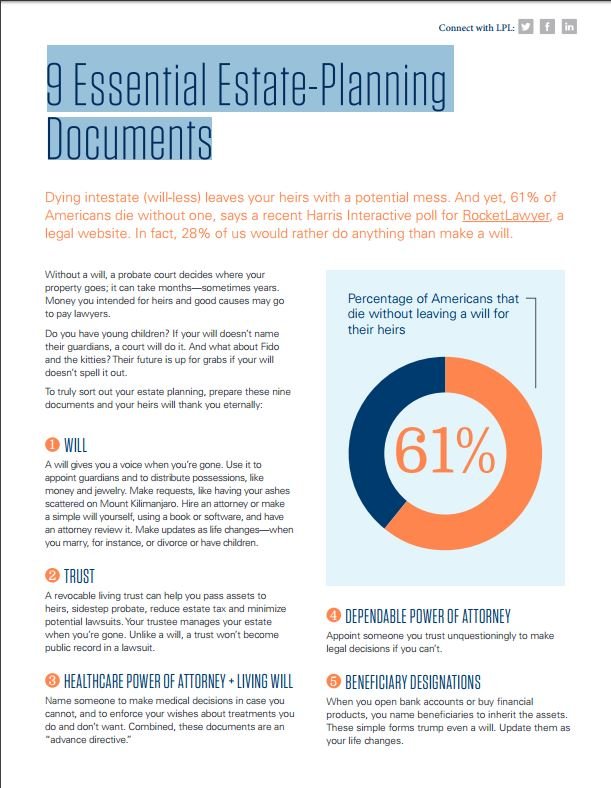
How to Navigate the Probate Process in California with the Help of a Skilled Lawyer
Navigating the probate process in California can be a daunting task, especially when you're grappling with the loss of a loved one. It's a complex legal procedure that involves wrapping up the deceased's financial affairs and distributing their assets according to their will or state law. But fear not! With the help of a skilled lawyer, this labyrinthine journey can become far less intimidating. First thing's first – what is probate? Well, it’s essentially the court-supervised process for gathering a deceased person’s assets, paying debts and taxes, and distributing what's left to inheritors. In California, if the estate exceeds certain thresholds (which do change so check for current limits), it'll likely go through probate unless there are mechanisms in place like living trusts that avoid it. Alright, let's dive in! Suppose your dearly departed Aunt Betty passed away (may her soul rest in peace), leaving behind an estate that requires going through probate. You're named as executor in her will – congrats... I guess? This means you've got some serious responsibilities on your hands. The first step is usually filing a petition for probacy (yes, I made up that word;
read more
What is the Role of a Probate Lawyer in California's Legal System?
In the intricate maze of California's legal framework, a California probate lawyer emerges as a crucial navigator, especially when it comes to the often convoluted process of distributing a deceased person's estate. Now, what exactly does this role entails? Let me break it down for you in layman terms (so don't worry if you're not well-versed in legalese!). First off, when someone passes away – and let's hope that's not anytime soon for any of us! – their assets and debts need settling. This is where our probate lawyer steps in; they're like the conductor of an orchestra, ensuring every instrument plays its part correctly. They help executors (those tasked with carrying out the will) or administrators (when there ain't no will) manage the whole shebang. One of their first tasks is to get this thing called 'probate' which is basically court approval to start divvying up the deceased's stuff according to their last testament or state law if there isn’t a will. And trust me, getting through this process without professional help can be more tangled than a bowl of spaghetti! A probate lawyer also lends a hand—or rather
read more
What Is Standing Between You and Peace of Mind?
Discovering the tranquillity within one's own mind can often be compared to navigating through a labyrinth, where the walls are built from worries and uncertainties about future. Oddly enough, it's not always the specter of death that casts a shadow over our peace; rather, it's the thought of leaving behind a disorganized legacy that haunts many of us. Now let’s talk (for just a moment) about avoiding probate with wills and trusts —perhaps not the most thrilling of discussions, but stick with me! These legal instruments might just hold the elusive key to calming those nagging fears regarding asset protection. You'd think your belongings would naturally find their way into your loved ones' hands without much fuss. Yet, this isn't always so straightforward as life enjoys its curveballs! Moreover! The saga of estate planning is rife with tales of unintended consequences when individuals neglect this crucial step. Without a clear will or trust in place, state laws take over and distribute your possessions in ways that may not align with your wishes at all. And what if you become incapacitated? A well-crafted trust could ensure that someone you genuinely trust manages your affairs rather
read more
How to make a living trust
The basic components of an estate plan include a will or living trust (or both), a living will, and a power of attorney for finances and health care (also known as a health care proxy). Poa designations give an individual you trust the authority to manage your finances or make health care decisions if you become incapacitated. You can also use a power of attorney to designate an individual to manage your digital assets, such as your online and social media accounts. Some individuals use living trusts to avoid probate and designate a trustee to manage their assets after they die (see when do living trusts make sense ?). Most people use their estate plan to determine who will get their property when they die. Wills are the most popular estate planning tool for this because they tend to be more simple, less expensive, and more well known that other estate planning tools. You can also use a living trust to name beneficiaries for your property. The main benefit to using a living trust is that the property that passes through living trusts does not have to go through probate. However, most living trusts are more
read more
What is probate, and can it be avoided?
Normally, if the owner of real estate dies, the real estate must be transferred through the probate process. Probate can be avoided by executing a “ladybird deed” during the owner’s lifetime. What is a deed? when an owner is alive, florida real estate is transferred from one party to another using a deed. A deed must identify the grantor(s) and grantee(s), contain the legal description for the property, and be signed by the grantor(s), two witnesses, and notarized. The grantor is the person giving an ownership interest and the grantee is the person receiving an ownership interest. The notary can act as your second witness, but must sign in the witness portion of the document in addition to the notary certificate. What is an executor? A will and testament is an important legal document that outlines your wishes regarding the distribution of your estate and names your executor(s) – these are the people that will take care of distributing your assets after you pass. They will be responsible for securing assets and using them to pay any inheritance tax owed, or settle any outstanding debt. This appointed executor will then distribute the remaining assets according to the wishes set out
read more
How to execute your estate plan
By “formal” documents, i mean documents that have legal effect. For example, you have most likely heard of at least two formal estate planning documents: a last will and testament and a living trust. Both a will and a trust can say what happens to your stuff after you die. And even though there are some major differences between wills and trusts , both can be legally enforced if properly executed — though it’s important to remember that wills are subject to probate. Other formal estate planning documents can give someone the legal authority to take care of your self. There are many sources for estate planning offered on the internet or by various organizations, and the incentive to avoid attorneys’ fees is often a motivating factor. However, the advantages of spending some money up front to have a well thought out and drafted plan, which is properly executed so as to be enforceable after death, cannot be overstated. Some problems often encountered in self-d rafted documents that have not been at least reviewed by an attorney include: not having enough witnesses, improper execution of the documents by witnesses, failure to properly authenticate the signatures and failing to include the
read more
Special considerations for estate planning
An estate plan is a series of legal documents outlining how you want your affairs managed after you pass away. An estate plan may address questions and concerns regarding matters like: guardianship , or who will care for your minor children or special needs dependents if you pass away. Heirs and beneficiaries, or who will inherit money and property after your death. Power of attorney , or whom you trust to make financial and legal decisions if you become incapacitated. Healthcare proxy, or who will make medical decisions on your behalf if you become incapacitated. Many people work with an estate planning attorney or financial planner when creating their strategy. The importance of estate planning in preventing disputes and complications among your family members has been discussed above. In addition to these benefits, there are others as well. With a plan in place, you can manage the destiny of your hard-earned wealth so that your heirs enjoy both the benefits and peace of mind you want for them. Don’t let the wealth transfer process go against your wishes by not planning how and when your assets will be distributed. Beneficiaries should be re-designated as needed. Tax minimization is important. Assist
read more